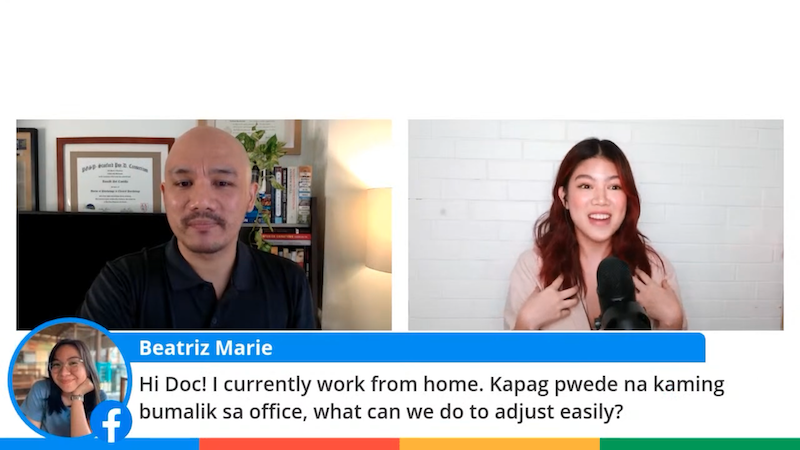The ongoing pandemic continues to take a toll on many people’s mental and digital well-being. In a recently held Google-organized Well-being Day live stream, a discussion about this timely topic was led by Ronald Del Castillo, PsyD, MPH of DIWA Mental Health, and participated by other speakers to include Geia Lopez from Google, and YouTube creators Janina Vela, Lyqa Maravilla, and Madam Ely.
Based on the webinar, here are some tips that can help protect your mental and digital well-being:
Try Journaling
If you’re feeling overburdened, try journaling and writing down positive experiences. Using an actual pen and paper can help slow down your mind as it will follow the pace of your writing hand. This also provides an opportunity for positive self-talk and identifying negative thoughts and behaviors. Identifying stressors will help you work on a plan to resolve problems.
25 on, 5 off
For working professionals, try the technique of working for 25 minutes straight followed by a five-minute break throughout the day. Do this four to five times then take a longer break for 15 minutes. By repeating this process throughout the day, you can be productive and less stressed at the same time on a busy day.
Take Deep Breaths
Feeling overwhelmed? Try the 4-7-8 breathing technique which involves breathing in for four seconds, holding your breath for seven seconds, and exhaling for eight seconds through the mouth. This type of deep, rhythmic breathing is relaxing and may help ease people into sleep.
Practice Doing Nothing
Being constantly busy can lead to higher levels of stress. There is value in spending time in silence, nature, and not engaging in constant external stimulation. We need time doing ‘nothing’ to be our best selves: this means disconnecting from gadgets, media, and work for a few minutes or an hour.
Have Healthier Arguments
Arguments are part of life and there are ways to make them healthy. According to Dr. Del Castillo of DIWA Mental Health, having healthy arguments means using “I” rather than “you” statements: do not call each other names, focus on the issue at hand, offer a solution, check your voice and tone, and most importantly, listen and take turns.
Set Bite-sized Goals, Not Mouthful Chunks
When there are many things that demand your attention, it’s important to take a step back and list down priorities. Break down big tasks into small ones and set realistic deadlines. Making small yet progressive strides is efficient and can give a sense of accomplishment which is important in reducing stress levels.
Find a Balance with Technology

Google’s Digital Wellbeing tools can help you be more aware of your digital habits to be able to form healthy ones. For instance, its Dashboard feature gives a daily view of how often you check your phone and how frequently you use different apps. It allows you to set limits with daily app timers which pause apps or websites for the day when the timer runs out.
Minimize the Number of Times You Pick Up Your Phone
To minimize distractions and the number of times you pick up your phone, you can use Google Assistant to do simple tasks like checking the time without actually having to hold your phone.
Focus When You Need To
Minimizing distractions is key. Through the Digital Wellbeing’s Focus Mode, you can see which apps distract you the most and choose which ones you want to pause or take a break from. Once set, your distracting apps will be inaccessible until the timer goes off.
Create a Bedtime Schedule & Stick with It
Having consistent bedtime routines plays an important role in reducing late-night stress and anxiety. With Digital Wellbeing’s Bedtime mode, you can set a bedtime schedule that will automatically turn on the Do Not Disturb feature so that you won’t be alerted by notifications. It also fades your screen to grayscale to prevent bright colors and light stimulating your brain when you need to shut down.
Get Help When You Need It
Acknowledging you need help is the first step towards a solution and healthier mental well-being — but where does one go to get said help? Google Search now instantly shows the National Center for Mental Health Crisis Hotline (0966-351-4518) when a person types in related keywords to remind and prompt people to seek professional help during their vulnerable state.
For more information about Digital Wellbeing tools and programs, visit wellbeing.google. You can rewatch the event on Google Ph’s YouTube channel.


